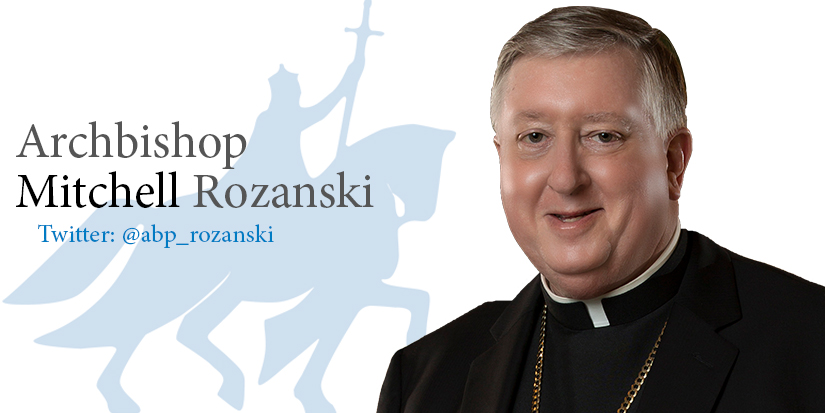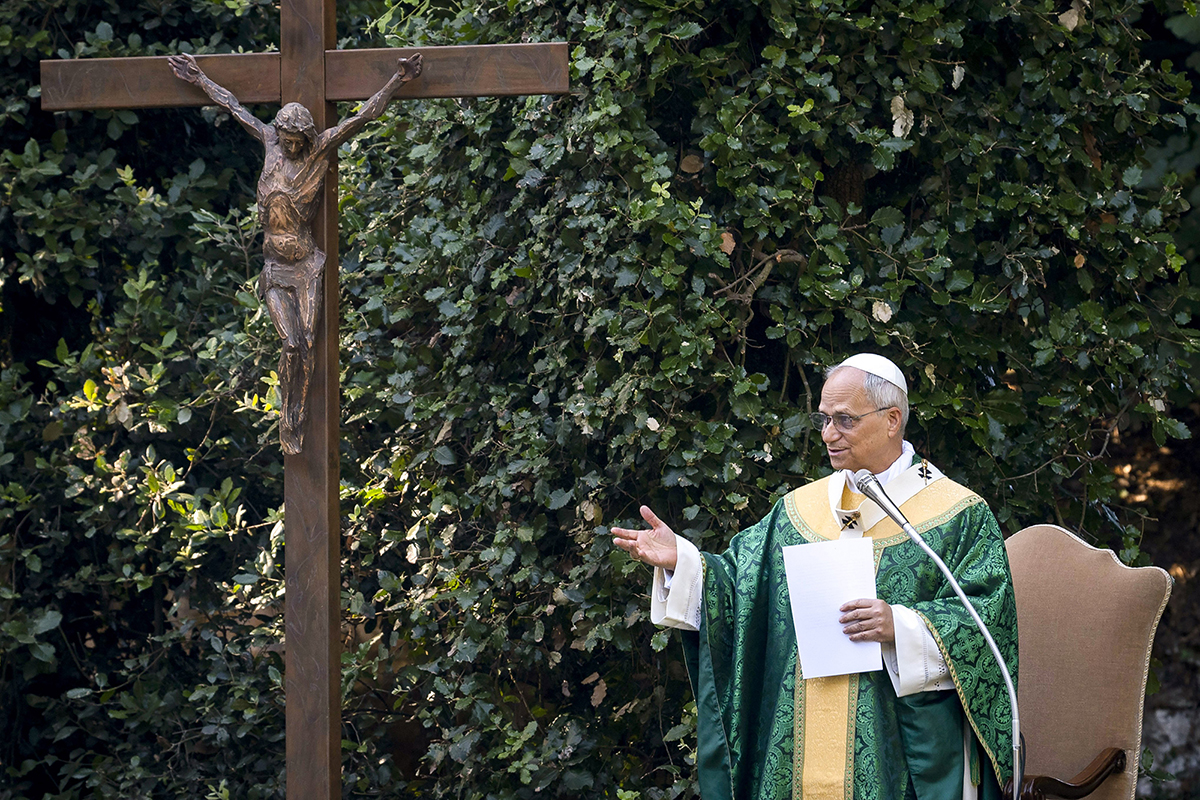SERVE THE LORD WITH GLADNESS | To flourish, we must stop avoiding the darkness
Advent offers the option to foster the discipline of hope, even as the nights grow longer

Dear brothers and sisters in Christ,
We’re moving into the darkest time of the year, with the shortest days and the longest nights. I think there’s a lesson for us if we’re willing to step back and ask, how’s our ability to wait in the darkness?
Perhaps Advent shows that we’re not very good at it — at least, not spiritually. Our culture tends to skip over Advent. We can’t dwell in the darkness with hope. So we try to avoid it and grasp for the light of Christmas.
Christmas isn’t the problem — the grasping and avoiding is.
That’s not meant as a finger-wagging accusation so much as an honest spiritual assessment. Americans aren’t very good at waiting. After all, we invented fast food and microwaves! But darkness — physical, psychological and spiritual — are inevitable in human life. At some point, if we’re going to flourish, we can’t go on avoiding the darkness. We need to learn to dwell in it, for a time, and keep moving forward with patience and hope — even and especially when we don’t see the light growing.
Advent is meant to be a training ground where we develop the discipline of hope. The world needs us to develop that discipline! We live in a world where hope in the midst of darkness is desperately needed.
Optimism is the belief that things will get better because that’s how the world is. But let’s be honest: The world often disappoints us, and is bound to disappoint us because it’s fallen. Hope, on the other hand, holds that things will ultimately turn out all right because of who God is. And that’s why “hope does not disappoint” (Romans 5:5): because it’s rooted in God, not the world.
Abraham was given a promise by God that he would have descendants as numerous as the stars of the sky, they would have a land of their own, they would be a great nation, and through him all nations would be blessed. But, at the time of his death, Abraham had exactly two sons and a burial plot. It would be 2,000 years before all the elements of that promise were fulfilled. But Abraham had faith in God. That faith allowed him to foster the discipline of hope, to keep moving forward, knowing that the light would eventually come.
We hear powerful words of hope from the prophet Jeremiah this week. “Behold, the days are coming, says the Lord, when I will raise up a righteous shoot to David.” But we have to realize: Jeremiah spoke those words at the start of the Babylonian Exile, when the darkness was just beginning. It would be 500 years before this prophecy was fulfilled. But Jeremiah had faith in God. That faith allowed him to invite all of God’s people to foster the discipline of hope — to keep moving forward, knowing that the light would eventually come.
“I don’t see that things are getting better.” When we say those words we’re naming a certain kind of darkness. How do we respond to the darkness? Do we try to withdraw, because it’s hard? Do we rage against it, in a kind of despair?
Advent offers us another option: to foster the discipline of hope, even as the nights grow longer.
Let’s foster that discipline in ourselves, so we can offer it to the world.





